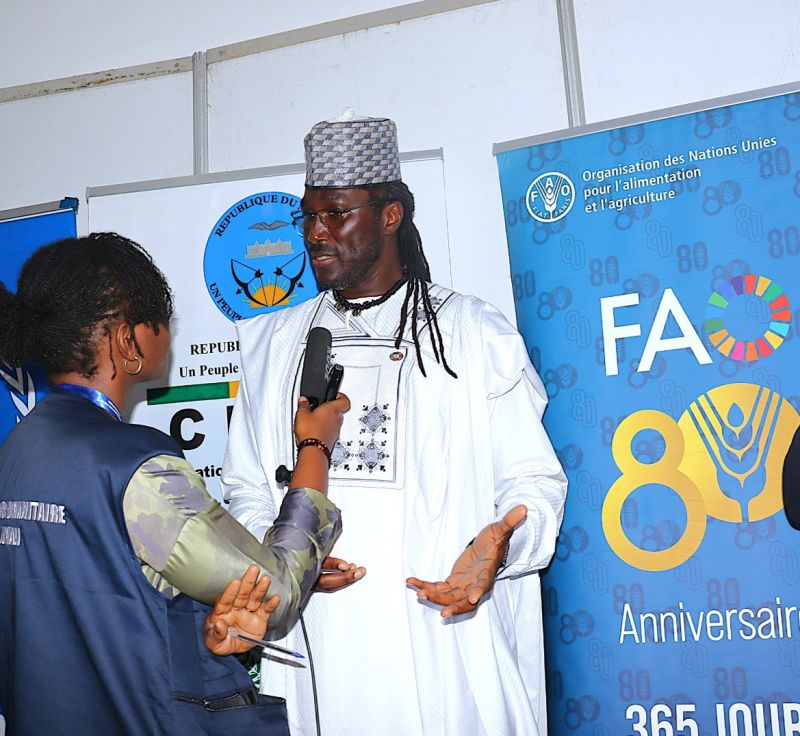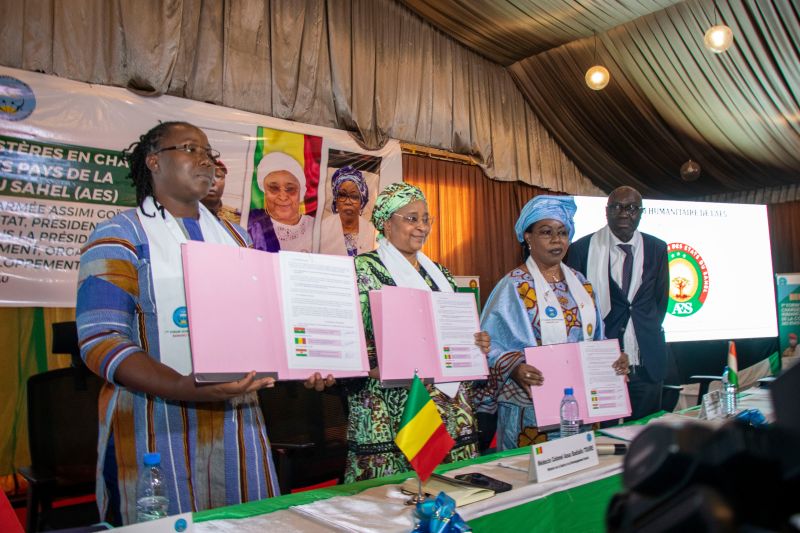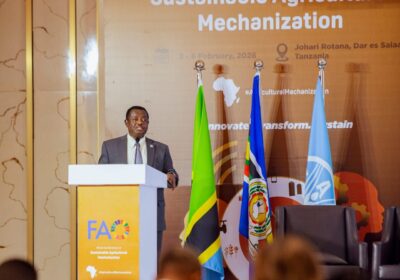FAO and Parners Attend First AES Humanitarian Forum in Bamako,Says 50 Million Face Food Crisis.
By Raymond Enoch
The inaugural Humanitarian Forum of the Alliance of Sahel States (AES) convened in Bamako, Republic of Mali, draw international attention to a region on the brink of a humanitarian disaster. With high-level delegates from the governments of Mali, Niger, Burkina Faso, Togo, Chad, and Mauritania, the forum brought together United Nations agencies, NGOs, donors, and development partners for critical discussions on the Sahel’s worsening humanitarian outlook.
Participants focused on four key areas: the ongoing humanitarian situation, chronic funding gaps, the urgent need for improved coordination, and a renewed commitment to humanitarian principles. The tone of the discussions reflected both the gravity of the crisis and the shared determination to respond more effectively.

At the heart of the forum’s agenda was an alarming statistic: over 50 million people in West Africa and the Sahel are currently food insecure at Crisis level or above (CH Phase 3+). Within the Central Sahel alone, approximately 6 million people are in crisis (CH3+), and an additional 15 million people are under stress (CH2+).
The Food and Agriculture Organization (FAO) used the platform to amplify calls for joint action and enhanced regional collaboration. As a representative of FAO, I emphasized the importance of emergency agriculture as both a lifeline and a path to recovery—particularly for displaced populations and the communities that host them.
“In the face of rising instability and acute hunger, emergency agriculture must be treated as a top priority,” I noted. “It offers a chance for communities to regain self-reliance and resilience, while also contributing to stability and peacebuilding.”
The event took place amid a deteriorating security landscape. In the weeks leading up to the forum, the AES region witnessed coordinated jihadist attacks that killed over 400 soldiers—a grim backdrop that underscored the complex nexus between conflict, displacement, and food insecurity.
The AES—formed in 2023 and officially declared a confederation in July 2024—continues to pursue regional integration through initiatives such as a shared passport, development bank, and a common flag. Yet, these efforts unfold in parallel with a growing need for humanitarian interventions to sustain civilian life and preserve fragile livelihoods.

Despite the odds, the forum showcased encouraging political will. Government leaders and humanitarian actors alike stressed the urgency of acting now to bridge funding gaps, coordinate across borders, and invest in durable solutions that address both immediate needs and long-term development.
The stakes are high. Without prompt and unified intervention, millions more could be pushed into deeper levels of hunger and poverty. The outcomes of the AES Humanitarian Forum must be matched with bold, sustained actions—and the time to act is now.









